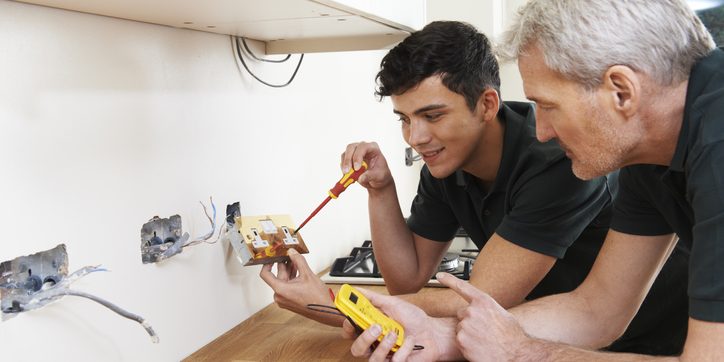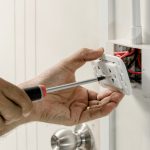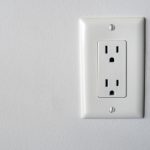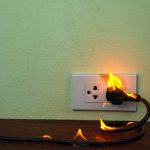If you are like most homeowners, you likely don’t think about your electrical outlets unless they stop working. However, if your home was built even a few decades ago, you may have outdated electrical outlets that are quietly putting your home at risk. Additionally, increased demands of modern technology mean that even new homes can have outdated outlets. If you want to know how you can spot an outdated electrical outlet and what you can do to replace them, read on.
There are a few specific cases in which old outlets become problematic for your home:
Outlets and the wires behind them can age in as quickly as five years. Over time, wires can settle, which may cause sparking, arcing, and electrical fires. This risk is small, but you don’t want to take the chance. If your outlets cannot provide the electricity you need, or if they have two holes instead of three, your home is at risk. If you notice flickering lights or inconsistent power, it may be because your outlets cannot keep up with your current demand.
There are several warning signs that indicate you should replace your electrical outlets as soon as possible. These signs include: sparking or hot outlets; cracked outlet covers: these cracks may let in dust and debris, which may cause damage. Have your outlets inspected by a professional first before replacing them.
Flickering lights: Two-pronged outlets aren’t grounded and aren’t safe. Consider upgrading to 3-pronged outlets.
Upgrade Outlets for New Appliances: You may need to upgrade outlets if you are adding a significant new appliance. This may be a factor if you are installing portable air conditioners (these window units use up quite a bit of power,) washers and dryers (these appliances use a lot of energy and may require a four-wire circuit,) hot tubs (these home accessories require dedicated outlets that can support them.)
If you find you need to replace an electrical outlet in your home, the first step is to hire a skilled electrician. The electrician may then take the following actions: swapping ungrounded outlets for grounded ones, upgrading the home’s electrical panel, or installing GFCIs (or Ground Fault Circuit Interrupters.) By installing these updated outlets, you can rest easy knowing that your home is not at risk for electrical outlet fires or circuit breaker shortages that will disrupt your daily life.





